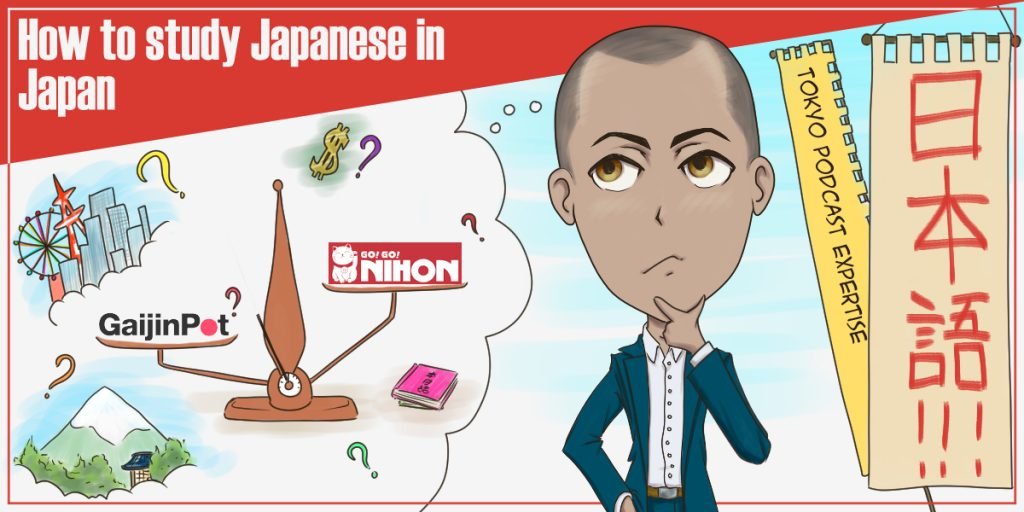For women who are considering living—or already live—in Japan, you may have wondered what it’s like being pregnant and giving birth in Japan. This week, Anthony speaks with LaShawn Toyoda, an American living in Japan who runs the blog The Yokohama Life. Through her personal experience being pregnant and giving birth in Japan, LaShawn has learned a great deal about the entire process of becoming a mother in Japan, all while speaking minimal Japanese.
Maternity leave:
If you’re an expecting mother, one concern you’ll have is how much paid time you’ll be allowed off from work. In Japan, maternity leave consists of two types: regular maternity leave and childcare leave. Maternity leave is provided to every female resident or citizen of Japan, regardless of salary or employer. It guarantees 67% of your salary starting from 6 weeks before your expected due date up until 8 weeks after giving birth. Childcare leave is available as well, but qualification depends on several factors, one of which is your employer guaranteeing your position once you return.
Hospitals and reservations:
Because Japan is so well-organized, an expecting mother is required to choose early on which hospital she will deliver her child. The choice of hospital and room can range widely, from public hospitals with shared bedrooms to private hospitals with private beds and meals for the mother and other family members who wish to stay.
According to LaShawn, a very important choice to make is whether to receive an epidural. In Japan, natural births are highly preferred, so hospitals which will administer epidurals are not as common. This leads to a limited choice of hospitals and potentially longer waiting lists. Choosing a hospital and method of delivery is best to do as early in your pregnancy as possible.

Assistance and costs:
You’re undoubtedly wondering—how much does having a baby in Japan cost, especially compared to a country like America with its infamously high healthcare costs? Lashawn was kind enough to share details about this, and the numbers may surprise you.
First, pregnancy and giving birth are technically not covered by Japan’s national healthcare system. However, according to Lashawn, the government will give you vouchers called ninsanpu hoken hiyō hojoken, which are used to cover costs of hospital check-ups and tests during pregnancy. Each time you visit a hospital or clinic for check-ups prior to giving birth, you present one of these vouchers, and your bill will be reduced. For LaShawn, this cut the cost of simple visits and check-ups down to about ¥2,000 (about $20), and more comprehensive visits such as blood tests down to about ¥20,000 (just under $200) each.
This relieves a bit of the burden for the time leading up to the birth, but what about the hospital stay around the time of birth? Japan also offers lump-sum assistance for expecting families. If approved, it’s sent to the hospital you’ve chosen and deducted from your total costs. The amount of this depends on various factors, but for LaShawn, it was ¥450,000 (about $4,200).
That’s not all. Japanese employers offer another form of assistance stemming from Japan’s gift culture, a kind of lump-sum ‘congratulations’ to expecting mothers. At least one year of employment with the company is required to qualify, so LaShawn, who had just started her new job around the time of her pregnancy, was not eligible. However, her husband was, and they received around ¥30,000 (about $300)
For LaShawn, her total—including check-ups, delivery, and room fees—was about ¥800,000, or about $7,400. This figure can vary greatly based on factors such as which hospital you choose and if you have a c-section. However, considering Japan’s famously top-notch quality of healthcare, this is relatively low, especially when compared to the price of giving birth in America as a foreigner.
Here’s a breakdown of what LaShawn paid for her pregnancy and childbirth:
- ¥497,000 Delivery
- ¥72,000 Hospital Entrance
- ¥60,000 Newborn Care and Management Fee
- ¥72,000 Room Fee
- ¥95,000 Surgery, examination, and medicine
- ¥16,000 Delivery benefits
- ¥3,000 Newborn Hearing Test
Total: ¥815,000
Follow-up care and support groups:
Japan highly values the family, so for most new Japanese mothers, her family provides plenty of much-needed support after her baby is born. However, if you’re a foreigner, it’s likely your family is not with you in Japan. Luckily, the Japanese government does offer some services post-hospital-discharge. According to LaShawn, these include a cleaning service, where a social worker will occasionally come and cook meals and clean for you, as well as a counseling service with personal home check-ups on your well-being. One catch to these services is that they’re only in Japanese, but if you’re willing to struggle through the language barrier, they could help to provide the support you need.
For more long-term peer support, there’s Tokyo Mother’s Group, which is an English-speaking support group for mothers and families in Tokyo. LaShawn herself is the co-founder of smaller online support group for new moms in Japan, which mostly communicates through a LINE chat group.
To hear more details of LaShawn’s personal story of being pregnant and giving birth in Japan, be sure to listen to this week’s episode. And if you’re interested in even more details, tips, and stories of becoming a new, foreign mother in Japan, visit LaShawn’s blog, The Yokohama Life.








